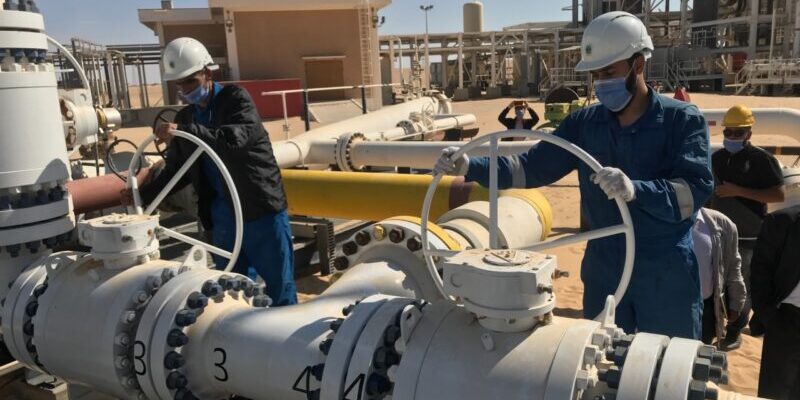The US is stepping up its support for diversified energy development in Libya, specifically targeting the modernization of its oil and gas sector, enhanced transparency and improved service delivery.
In a bid to bring American companies into the Libyan market, the U.S. Embassy in Tripoli and US Agency for International Development (USAID) have made recent commitments to establishing a business-enabling environment, improving fiscal transparency and promoting targeted reforms in the country, coupled with a string of recent multi-million-dollar contracts awarded to American firms.
Libya’s economy is highly dependent on oil and natural gas exports, which account for approximately 65% of GDP and over 90% of government revenues.
As a result, USAID has sought to enhance public financial management, transparency and accountability through institutional reform.
In line with its Strategic Framework for Libya 2021-2024, USAID aims to provide technical assistance to secure long-term stability and effective management of Libya’s resource wealth; work with the government to establish clear and transparent budget planning processes; and improve management, oversight and transparency of oil and gas revenues.
Such reforms are expected to create a more enabling investment environment in the country, with a view to attracting an influx of capital, services and technology.
Across the oil and gas value chain, US companies are playing an increasingly active role in expanding Libya’s upstream and downstream capabilities.
Last March, Libya’s National Oil Corporation (NOC) awarded a contract to US firm Honeywell-UOP for the construction of the 30,000 barrel-per-day South Refinery, estimated to cost between $500-$600 million, while Halliburton is expected to sign a one-billion-dollar agreement with the NOC to rebuild the Al-Dhara oil field in Central Libya.
Earlier this year, ConocoPhillips held discussions with Libya’s Ministry of Oil and Gas on increasing investments and accelerating project implementation, particularly around the North Jalu Project and Plot NC 98.
The American multinational is a key player in Libya’s hydrocarbons sector, with a 20.4% interest in the Waha Concession in the Sirte Basin.
Last September, the American Chamber of Commerce (AmCham) in Libya hosted a virtual briefing by Schlumberger, which recently signed a turnkey contract to support drilling work by Libya’s National Oil Wells Drilling & Workover Company in the Murzuq Basin.
These developments signal growing US confidence in the sector, as well as Libya’s commitment to working with multinationals to increase oil production.
Serving as a partner to Libya’s premier energy event – the Libya Energy & Economic Summit (LEES), which takes place next month in Tripoli – AmCham Libya identifies strategic areas of commercial interest in the North African country, with a view to opening Libya’s energy and infrastructure sectors up to US and global firms.
The US-Libya Business Association is another strategic partner to the event and helps companies navigate the challenges of doing business in Libya, as well as facilitates commercial and diplomatic dialogue between the two countries.
In the sustainable energy space, the U.S. Embassy in Libya adopted a strategy last October to support the country’s goal of generating 20% of its electricity from renewable resources by 2035.
A recent meeting between Libya’s Minister of Planning, Mohamed al-Zidani, and the U.S. Embassy’s Chargé d’Affaires, Jeremy Brent, demonstrated US commitment to modernizing Libya’s energy sector and supporting opportunities for American investors to participate in Libya’s energy and infrastructure sectors.
Last July, USAID announced an aid package to increase power generation capacity in Libya, with an emphasis on integrating renewable energy and reducing consumption.
![]()




